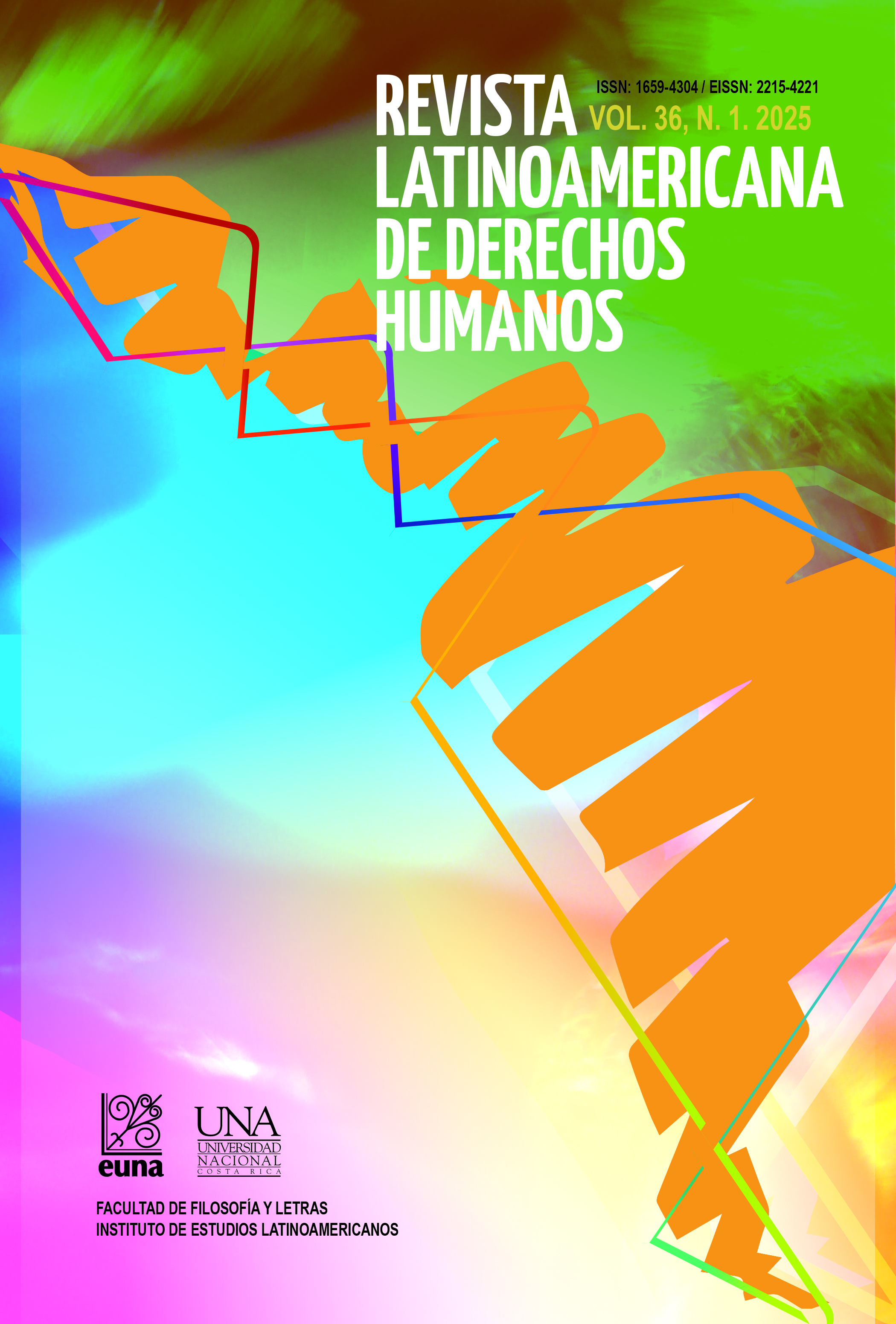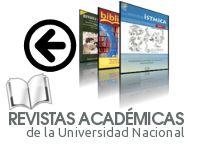The Biblioteca Interseccional De Imágenes Uruguayas creation process
DOI:
https://doi.org/10.15359/rldh.36-1.9Keywords:
intersectionality, image, identity, gender, diversity, inclusionAbstract
This article discusses methodological aspects and reflections on a project that is currently being developed: The creation of the Intersectional Library of Uruguayan Images, a bank of images featuring non-hegemonic characters. One of the library’s goals is to serve as a public resource for architecture and design professionals. The research question arises from the automatic and uncritical use of corporalities and poses that conform to representations based on stereotypes and imported images. The question is far from being solved with new technologies. It includes biases and automatic assumptions that need to be made visible by focusing on the production of meaning, considering that certain sectors of society are currently excluded from all visual representation in significant spaces of public life. The study incorporates surveys and analyses of the digital platforms most commonly used by design professionals in Uruguay, considering gender, generation, rights-based, and diversity perspectives to detect and overcome the problem. The work team comprises teachers and students from the Faculty of Architecture, Design, and Urbanism of Udelar. The images for the repository are produced using participatory design methodologies, with the essential contribution of activists and social groups.
References
Adobe Stock. (2024). Inicio. https://stock.adobe.com/cr
Augé, M. (2009). Los no lugares. Espacios del anonimato. Antropología sobre
la modernidad. Madrid: Gedisa
Augé, M. (2023). Murió Marc Augé, un filósofo decisivo del pensamiento francés. Noticia recuperada en: https://www.diariodecultura.com.ar/literatura/murio-marc-auge-un-filosofo-decisivo-del-pensamiento-frances/
Björk (1997). The South Bank Show Documentary. https://www.youtube.com/watch?v=O-Z9Zp65Fak
Canguilhem, G. (1971). Lo normal y lo patológico. Buenos Aires: SigloXX
Cátedra Gamboa (2011). El Modulor de Le Corbusier. https://eg2gamboa.blogspot.com/2013/04/el-modulor.html
Comisión Nacional de Investigación Científica y Tecnológica, CONICYT, Chile (2018).
Leonardo Da Vinci, ingeniero, inventor y artista.
Disponible en: https://www.youtube.com/watch?v=oosUHvt2TkM
Escalalatina (2024). Inicio. https://www.instagram.com/escalalatina/
FADU Udelar. La ciudad imaginada. 100 años de concursos de arquitectura. La ciudad imaginada. 100 años de concursos de arquitectura. https://concursos.fadu.edu.uy
Frascara, J. (1997). Diseño gráfico para la gente. Buenos Aires: Infinito.
Freepik (2024). Inicio. https://www.freepik.es/fotos-vectores-gratis/tio/97
INMUJERES. (2016). Modelo de calidad con equidad de género. Uruguay. Edición 2016.
Jeong Mee Yoon (2007). The Pink & Blue Project. http://www.jeongmeeyoon.com/aw_pinkblue.htm
Junta Nacional de Drogas de Uruguay (2024). Inicio: Junta Nacional de Drogas - GUB.UY (www.gub.uy)
Koolhaas, Rem (2006). La ciudad genérica. Barcelona: GG
Ledesma, M. (2010) El diseño gráfico, una voz pública (de la comunicación visual en la era del individualismo). Buenos Aires: Wolcowicz Editores.
Molina, E. y Rodríguez, G. (s. f.). Relevamiento fotográfico de personajes de Montevideo y desarrollos posteriores. Trabajo estudiantil. BIIU
Mr Mockup (2024) Inicio. https://mrmockup.com/
Nappy Stock (2024). Inicio. https://nappy.co
Ngozi Adichie, Ch. (2018). El peligro de la historia única. Barcelona: Random House
Nogué, J. (2008). Al margen, los paisajes que no vemos. En Javier Maderuelo,
Paisaje y territorio. Madrid: Abada Editores.
Ruiz, E. (2022). Björk habla en exclusiva de cómo la inspiran la naturaleza y el amor: “Vivo una vida muy normal”. https://www.infobae.com/teleshow/2022/11/07/bjorkhabla-en-exclusiva-de-como-la-inspiran-los-hongos-y-el-amor-vivo-una-vida-muynormal
Segato, R. (2018). Contrapedagogías de la crueldad. Buenos Aires: Prometeo.
Segato, R. (2018). La crítica de la colonialidad en ocho ensayos. Buenos Aires: Prometeo.
Skalgubbar (2024) Inicio. https://skalgubbar.se/
Studio Alternativi (2024) Inicio. https://studioalternativi.com/
Unsplash (2024). Inicio. https://unsplash.com/es
Zippy Pixels (2024). Inicio. https://zippypixels.com/
Downloads
Published
How to Cite
Issue
Section
License
El material que se publica en esta Revista está bajo una licencia “Creative Commons” 3.0 Costa Rica (CC, Reconocimiento-NoComercial-SinObraDerivada 3.0 Costa Rica (CC BY-NC-ND 3.0 CR) . Esto significa que el material publicado en la revista se puede compartir (copiar y distribuir) en cualquier medio o formato considerando que se debe reconocer de forma adecuada la autoría del material y la fuente, no puede utilizarse con fines comerciales y no se aceptan las obras derivadas (remezclar, transformar o crear a partir del material).








